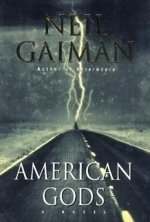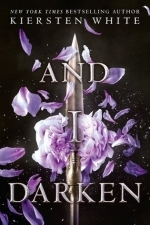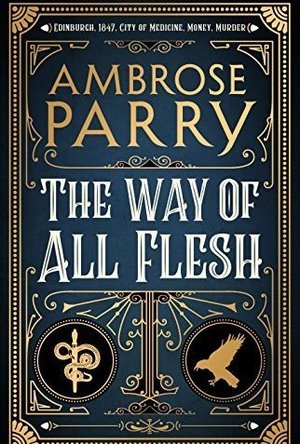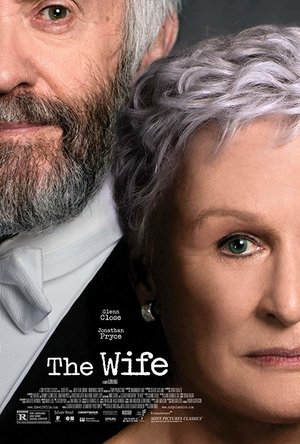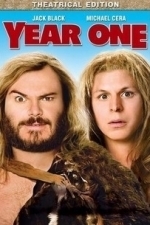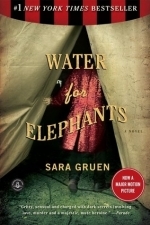Search
Search results
Hadley (567 KP) rated American Gods in Books
Jun 5, 2020
Mad Sweeney (1 more)
Gaiman's writing and descriptions
No character development (2 more)
Dehumanizes women
The ending
The gods of the old world still exist in Neil Gaiman's 2001 novel "American Gods."
A science fiction/ fantasy story set in today's America, American Gods tries to answer the question of what happens when people stop believing in the past gods, and start worshiping new ones?
Shadow is our main character, who we meet while he's attempting to get released from prison after three years of incarceration - - - afterall, he has a job, wife and life waiting for him on the outside. And even though he's built up a strong exterior while in prison, everything comes crashing down after he receives news that his wife and best friend have died in a car accident.
Cue Wednesday, an old, odd man who gives Shadow a job after his release from prison - - - with strings attached: Shadow can't ask any questions, he must protect his employer at all costs, and if people need to be hurt, he must hurt them. Although Wednesday doesn't tell him exactly what is going on, Shadow agrees to his duties and begins a road trip with the eccentric old man, meeting an array of colorful characters along the way. But soon, Shadow begins to realize that his employer may be a mythical god in disguise, yet, oddly Shadow never really questions it or anything in the entire book for that matter.
The novel takes an odd turn early on when Shadow's dead wife, Laura, comes back to life in a zombified way. While Shadow is staying in a cheap hotel room, and Wednesday sharing a room with a young hotel employee in another, Shadow sees his wife in the clothing she was buried in, but he doesn't flinch - - - he carries a very calm conversation with dead Laura, he even goes down to the lobby to buy her a pack of cigarettes, and the next morning, he still doesn't seem bothered by it when he sees her muddy footprints on the floor. Wednesday tries to convince Shadow it was a dream, but makes snarky remarks that tells Shadow that even he knows it wasn't a dream. The two simply move on on their road trip, no questions asked.
But during this road trip, Shadow's suspicions are confirmed. He gets to see not only Wednesday, but two others in their true god-form, and afterwards, Wednesday confirms that he is indeed the Norse god, Odin.
Gaiman's take on mythological gods living in today's society is interesting, but disappointing. From recognizable gods to the forgotten ones, readers with a liking to history would probably enjoy this story most.
American Gods centers on the question of what happens to gods when they are no longer worshipped, and Gaiman merely focuses on male gods, while making all female characters (gods and humans) either prostitutes and/or sexual objects which is really off-putting for me as a female reader. And Gaiman's character development in the novel for gods and humans is nowhere to be seen thus lending very little plot development that is actually believable or enjoyable. I was unable to bring myself to care about our main character, Shadow, nor the plight with his zombie wife.And speaking of Laura, the disappointing character traits makes her not just unlikable, but also an unnecessary character overall.
I just can't recommend this book: the novel is good for the first 100 pages, but you could easily skip the next 450 pages that is just filler, and not miss much of the story. Gaiman also dehumanizes women, introduces characters in a way that would make them seem an important part of the story to only drop them out of it as quickly as they came in, and the ending is just a huge disappointment. All in all, Gaiman had a great idea, but the execution he used was poorly done - - - some parts even seem like Gaiman wrote them in a completely different state of mind, contradicting story lines and character traits altogether.
I did, however, have three favorite characters that weren't utilized enough for me to rate the story higher than I have: Mad Sweeney, Ibis and Jacquel. Mad Sweeney is a giant leprechaun that can pull gold coins out of the air; Ibis and Jacquel are Anubis and Jackel from Egyptian mythology, who run a funeral home in Cairo, Illinois today.
American Gods takes place only over a few months, which is surprising with how long the novel is. But the story is a buildup with no climax. Most characters come and go before readers can even decide if they like them or not,and that paired up with severe lack of character development leaves most of the main characters pretty forgettable. With this special edition containing 1200 more words, the story is still not worth it in the end. Gaiman is still a great writer, but this is not the book to recommend to anyone who wants to begin reading his work.
A science fiction/ fantasy story set in today's America, American Gods tries to answer the question of what happens when people stop believing in the past gods, and start worshiping new ones?
Shadow is our main character, who we meet while he's attempting to get released from prison after three years of incarceration - - - afterall, he has a job, wife and life waiting for him on the outside. And even though he's built up a strong exterior while in prison, everything comes crashing down after he receives news that his wife and best friend have died in a car accident.
Cue Wednesday, an old, odd man who gives Shadow a job after his release from prison - - - with strings attached: Shadow can't ask any questions, he must protect his employer at all costs, and if people need to be hurt, he must hurt them. Although Wednesday doesn't tell him exactly what is going on, Shadow agrees to his duties and begins a road trip with the eccentric old man, meeting an array of colorful characters along the way. But soon, Shadow begins to realize that his employer may be a mythical god in disguise, yet, oddly Shadow never really questions it or anything in the entire book for that matter.
The novel takes an odd turn early on when Shadow's dead wife, Laura, comes back to life in a zombified way. While Shadow is staying in a cheap hotel room, and Wednesday sharing a room with a young hotel employee in another, Shadow sees his wife in the clothing she was buried in, but he doesn't flinch - - - he carries a very calm conversation with dead Laura, he even goes down to the lobby to buy her a pack of cigarettes, and the next morning, he still doesn't seem bothered by it when he sees her muddy footprints on the floor. Wednesday tries to convince Shadow it was a dream, but makes snarky remarks that tells Shadow that even he knows it wasn't a dream. The two simply move on on their road trip, no questions asked.
But during this road trip, Shadow's suspicions are confirmed. He gets to see not only Wednesday, but two others in their true god-form, and afterwards, Wednesday confirms that he is indeed the Norse god, Odin.
Gaiman's take on mythological gods living in today's society is interesting, but disappointing. From recognizable gods to the forgotten ones, readers with a liking to history would probably enjoy this story most.
American Gods centers on the question of what happens to gods when they are no longer worshipped, and Gaiman merely focuses on male gods, while making all female characters (gods and humans) either prostitutes and/or sexual objects which is really off-putting for me as a female reader. And Gaiman's character development in the novel for gods and humans is nowhere to be seen thus lending very little plot development that is actually believable or enjoyable. I was unable to bring myself to care about our main character, Shadow, nor the plight with his zombie wife.And speaking of Laura, the disappointing character traits makes her not just unlikable, but also an unnecessary character overall.
I just can't recommend this book: the novel is good for the first 100 pages, but you could easily skip the next 450 pages that is just filler, and not miss much of the story. Gaiman also dehumanizes women, introduces characters in a way that would make them seem an important part of the story to only drop them out of it as quickly as they came in, and the ending is just a huge disappointment. All in all, Gaiman had a great idea, but the execution he used was poorly done - - - some parts even seem like Gaiman wrote them in a completely different state of mind, contradicting story lines and character traits altogether.
I did, however, have three favorite characters that weren't utilized enough for me to rate the story higher than I have: Mad Sweeney, Ibis and Jacquel. Mad Sweeney is a giant leprechaun that can pull gold coins out of the air; Ibis and Jacquel are Anubis and Jackel from Egyptian mythology, who run a funeral home in Cairo, Illinois today.
American Gods takes place only over a few months, which is surprising with how long the novel is. But the story is a buildup with no climax. Most characters come and go before readers can even decide if they like them or not,and that paired up with severe lack of character development leaves most of the main characters pretty forgettable. With this special edition containing 1200 more words, the story is still not worth it in the end. Gaiman is still a great writer, but this is not the book to recommend to anyone who wants to begin reading his work.
Lindsay (1793 KP) rated Christmas in London: A Novel in Books
Dec 19, 2019
This book I thought would be more about one couple getting to know each other and the other being a young man they get together and see more of London at Christmas. This did somewhat happen though not the way I pictured it.
It about two women, one a pastry chef and the other network producer. The one named Kate was a better story line that kept me reading. I was half attempting to not complete reading it and making it DNF. It was boring to read. It was a romance. There was not much going on about this cooking show. The woman Louisa was more worried about her dreams. She did not see that she had two men falling for her. If the author had made it more about cooking and her recipes. I would then see how Louisa was acting. No, that not what I got.
The subplot with Kate seems more like what I was expecting. Her penning for her love and see London with her lost love. She runs into him at the hotel and spends the week sightseeing. This story is a better storyline and more enjoyable. I enjoy meeting Trevor. Their story was more of a love story and seeing their experience in London at Christmas.
I enjoyed hearing about some of the places in London. Imaging the couples there experiencing London during Christmas. Kate and Trevor's story is one that I would have read more about. Trevor and Kate have a history together. Reading about St. Andrews and their past. I may be happy to read. I was could picture the area. Scotland and some of the landmark the best parts.
It about two women, one a pastry chef and the other network producer. The one named Kate was a better story line that kept me reading. I was half attempting to not complete reading it and making it DNF. It was boring to read. It was a romance. There was not much going on about this cooking show. The woman Louisa was more worried about her dreams. She did not see that she had two men falling for her. If the author had made it more about cooking and her recipes. I would then see how Louisa was acting. No, that not what I got.
The subplot with Kate seems more like what I was expecting. Her penning for her love and see London with her lost love. She runs into him at the hotel and spends the week sightseeing. This story is a better storyline and more enjoyable. I enjoy meeting Trevor. Their story was more of a love story and seeing their experience in London at Christmas.
I enjoyed hearing about some of the places in London. Imaging the couples there experiencing London during Christmas. Kate and Trevor's story is one that I would have read more about. Trevor and Kate have a history together. Reading about St. Andrews and their past. I may be happy to read. I was could picture the area. Scotland and some of the landmark the best parts.

Drakaina's Fire (Drak Defense Co. #1) by Raven Lovelace
Book
Daphne My existence is one of constant danger. I am the oldest, the leader of a race of immortal...
Paranormal Romance Shifters Dragons Fated Mates
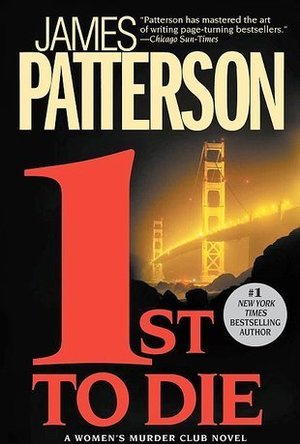
1st to Die (Women's Murder Club, #1)
Book
James Patterson, bestselling author of the Alex Cross novels Along Came a Spider, Kiss the Girls,...
Hazel (1853 KP) rated And I Darken (The Conqueror's Saga #1) in Books
Dec 7, 2018
<i>This ARC was provided by the publisher via NetGalley in exchange for an honest review
And I Darken</i> is the first book in a brand new saga, <i>The Conquerors</i>, by bestselling author Kiersten White. Aimed at young adults, it is set at the time of the Ottoman Empire, providing a brief historical lesson as well as an entertaining story.
Inspired by Vlad the Impaler, the tale begins in Transylvania, 1453 with the birth of Lada, a daughter for the ruler of Wallachia, Vlad Dracula (no relation to the vampire). Despite the expectation that women are quiet, docile and mere possessions, Lada grows up with a vicious temper, as wild and fierce as a boar, unlike her younger brother, Radu, who is very cautious by nature. The siblings, caught up in their father’s politics, are sent away to another city. Lada however cannot be tamed, and is quick to insult or physically assault anyone who tries to put her in her place, even her new friend who so happens to be in line to become sultan of the Ottoman Empire.
As the children grow up they begin to involve themselves in the running of the empire, providing advice and companionship to the new sultan. Both Lada and Radu experience strong feelings for their friend, which they try to suppress - Radu, because it is improper (for that time period), and Lada, because she wants to be a strong, independent warrior with the same rights as all men.
<i>And I Darken</i> is extremely political but not in the same vein as politics today. Back in the 1400s, constitutional disagreements lead directly to wars, usually caused by the greed of the ever-expanding empire. Whilst these events are taking place, the true story line surfaces, exploring three very strong relationships. Despite Lada’s façade she is a young woman who cares deeply but does not let her feelings get in the way of achieving greatness. Jealousies and misunderstandings challenge the bonds between friends and siblings, resulting in a cliffhanger to encourage the read to eagerly await the next installment.
Although based on true events, <i>And I Darken</i> is mostly a fantasy. Lada has the characteristics and behaviour of Vlad the Impaler, something that would not have been possible at the time for a woman, but other than references to various battles, there are no other correlations.
The relationships focused on in the narrative can be frustrating at times, and it is easy to become annoyed at the key characters’ actions. Often I felt like giving up on the book, as I was not interesting in the gruesome fighting scenes, and not particularly keen on either Lada or Radu. Although I can admire Lada for her strengths and aspirations and agree that she is right to want more in her life as a woman, I found her malicious behavior difficult to respect.
Overall, <i>And I Darken</i> is a bold attempt by Kiersten White to combine history, romance and young adult fiction, particularly as the characters who would be considered teenagers today, were deemed adults during that time period, resulting in them being much more mature than many of today’s readers. This series is suitable for male and female readers alike as it contains an equal measure of bloody action and budding romance. Sadly, despite my high hopes, this book was not for me.
And I Darken</i> is the first book in a brand new saga, <i>The Conquerors</i>, by bestselling author Kiersten White. Aimed at young adults, it is set at the time of the Ottoman Empire, providing a brief historical lesson as well as an entertaining story.
Inspired by Vlad the Impaler, the tale begins in Transylvania, 1453 with the birth of Lada, a daughter for the ruler of Wallachia, Vlad Dracula (no relation to the vampire). Despite the expectation that women are quiet, docile and mere possessions, Lada grows up with a vicious temper, as wild and fierce as a boar, unlike her younger brother, Radu, who is very cautious by nature. The siblings, caught up in their father’s politics, are sent away to another city. Lada however cannot be tamed, and is quick to insult or physically assault anyone who tries to put her in her place, even her new friend who so happens to be in line to become sultan of the Ottoman Empire.
As the children grow up they begin to involve themselves in the running of the empire, providing advice and companionship to the new sultan. Both Lada and Radu experience strong feelings for their friend, which they try to suppress - Radu, because it is improper (for that time period), and Lada, because she wants to be a strong, independent warrior with the same rights as all men.
<i>And I Darken</i> is extremely political but not in the same vein as politics today. Back in the 1400s, constitutional disagreements lead directly to wars, usually caused by the greed of the ever-expanding empire. Whilst these events are taking place, the true story line surfaces, exploring three very strong relationships. Despite Lada’s façade she is a young woman who cares deeply but does not let her feelings get in the way of achieving greatness. Jealousies and misunderstandings challenge the bonds between friends and siblings, resulting in a cliffhanger to encourage the read to eagerly await the next installment.
Although based on true events, <i>And I Darken</i> is mostly a fantasy. Lada has the characteristics and behaviour of Vlad the Impaler, something that would not have been possible at the time for a woman, but other than references to various battles, there are no other correlations.
The relationships focused on in the narrative can be frustrating at times, and it is easy to become annoyed at the key characters’ actions. Often I felt like giving up on the book, as I was not interesting in the gruesome fighting scenes, and not particularly keen on either Lada or Radu. Although I can admire Lada for her strengths and aspirations and agree that she is right to want more in her life as a woman, I found her malicious behavior difficult to respect.
Overall, <i>And I Darken</i> is a bold attempt by Kiersten White to combine history, romance and young adult fiction, particularly as the characters who would be considered teenagers today, were deemed adults during that time period, resulting in them being much more mature than many of today’s readers. This series is suitable for male and female readers alike as it contains an equal measure of bloody action and budding romance. Sadly, despite my high hopes, this book was not for me.

3D Hairstyle Games for Girls: Stylish Hair Salon
Lifestyle and Games
App
*** The largest collection of the latest hairstyles only in our 3D hair salon games! *** * Step...
Ross (3284 KP) rated The Way of All Flesh in Books
May 31, 2018
Excellent gripping period thriller set in Edinburgh's medical revolution
This tale of murder takes place in mid 19th century Edinburgh, where the city is at the forefront of the world's advances in medicine - both medical practices and procedures and also drugs and anaesthetics. Many nights are spent with some of the city's top surgeons sitting round the dinner table in the post-prandial slumber sampling various substances looking to find the perfect anaesthetic.
Will Raven, a recently qualified doctor, starts a new job as apprentice to Edinburgh's pre-eminent midwifery expert, Dr James Young Simpson. But he has recently found the dead body of a female friend and starts to investigate the mysterious circumstances of her demise.
The book takes several strands: we have the true history of Edinburgh's medical revolution where doctors like Simpson vied to get the job done but also find better ways to do it for their patients, we have the murder mystery angle, we have the capable and frustrated women who are refused to even attempt to do jobs they are clearly able to do, and we have the class system in full evidence and while many go along with it, some people like Simpson try to get past this and make their households more inclusive for all.
The threads are all interwoven brilliantly and combine to give a story that is both thrilling and interesting.
Having read a lot of Chris Brookmyre, I had high expectations for his storytelling and these were more than met with a brilliantly paced and enjoyable page-turner. I believe writing with his wife has helped tone down the language a little and the tone of the dialogue is very different to his previous work.
My one gripe would be that the climax of the story was a little laboured, with every single event, decision and twist explained numerous times from different perspectives. Given I had spotted a number of hints quite early on and knew who the perpetrator was, and was happy to assume certain things had happened, I didn't feel the need to have this confirmed at length in great detail.
Otherwise an excellent book and the start of a new series that I will be avidly waiting for the next instalment of.
Will Raven, a recently qualified doctor, starts a new job as apprentice to Edinburgh's pre-eminent midwifery expert, Dr James Young Simpson. But he has recently found the dead body of a female friend and starts to investigate the mysterious circumstances of her demise.
The book takes several strands: we have the true history of Edinburgh's medical revolution where doctors like Simpson vied to get the job done but also find better ways to do it for their patients, we have the murder mystery angle, we have the capable and frustrated women who are refused to even attempt to do jobs they are clearly able to do, and we have the class system in full evidence and while many go along with it, some people like Simpson try to get past this and make their households more inclusive for all.
The threads are all interwoven brilliantly and combine to give a story that is both thrilling and interesting.
Having read a lot of Chris Brookmyre, I had high expectations for his storytelling and these were more than met with a brilliantly paced and enjoyable page-turner. I believe writing with his wife has helped tone down the language a little and the tone of the dialogue is very different to his previous work.
My one gripe would be that the climax of the story was a little laboured, with every single event, decision and twist explained numerous times from different perspectives. Given I had spotted a number of hints quite early on and knew who the perpetrator was, and was happy to assume certain things had happened, I didn't feel the need to have this confirmed at length in great detail.
Otherwise an excellent book and the start of a new series that I will be avidly waiting for the next instalment of.
Bob Mann (459 KP) rated The Wife (2017) in Movies
Sep 28, 2021 (Updated Sep 28, 2021)
Glenn Close … #robbed.
I missed “The Wife” when it came out in September, but finally caught it a few weeks ago. (Been a busy time at work so have a bit of a backlog of reviews!).
The Plot.
Joan Castleman (Glenn Close) is the doting wife of internationally renowned writer Joe Castleman (Jonathan Pryce). As we start the film, Joe has just received a call from Stockholm. No, it’s not an “amusing story about a goat” (for any MM2 fans out there). It’s notification that he is to receive the Nobel prize for literature. As Joan listens to the news on the extension, there is something in her eyes that betrays mixed emotions.
They travel to Sweden (on Concorde, obviously) with their son Max (Max Irons) – a writer at the start of his career. Max and Joe have a strained relationship.
Also in Stockholm is Nathanial Bone (Christian Slater) – the bane of Joe’s life, since he seems insistent on writing the biography of the great man. As Nathanial picks through the history of the couple, things start to unravel in unexpected ways.
What a performance!
The heart of this film, and the main reason for watching what is really a bit of a pot-boiler, is the performance by Glenn Close. It’s a remarkable demonstration of the acting craft and 110% Oscar worthy.
Don’t get me wrong…. as I watched the Oscars live in the wee-hours of Monday morning I let out a WHOOP of joy when our own national treasure Olivia Colman picked up the award. But I have to say that I think Glenn Close was rather robbed. Close can act brilliantly without saying a single word. In fact most of her best scenes are reaction shots to what she is listening to.
In comparison I found Jonathan Pryce to be a soupçon over-the-top as the feted writer, and I didn’t find the portrayal of Bone by Slater to be terribly convincing. So it’s a very mixed acting bag in my view.
Utterly gorgeous in a way that only Swedish women can be is Karin Franz Körlof as the personal photographer Linnea. She can also act!
A perfectly pleasant movie
Directed by Swedish director Björn Runge and with a screenplay by Jane Anderson, it’s a perfectly pleasant way to spend a couple of hours. The story is intriguing enough to keep your interest, although it plays its hand so early that the simmering suspense element ebbs out of the film. A final “Sixth Sense” style of reveal might have been much more effective.
But this is above all a film to relish the performance of Close: the facial acting during the speech at the awards ceremony is something that should be studied at acting schools for years to come.
The Plot.
Joan Castleman (Glenn Close) is the doting wife of internationally renowned writer Joe Castleman (Jonathan Pryce). As we start the film, Joe has just received a call from Stockholm. No, it’s not an “amusing story about a goat” (for any MM2 fans out there). It’s notification that he is to receive the Nobel prize for literature. As Joan listens to the news on the extension, there is something in her eyes that betrays mixed emotions.
They travel to Sweden (on Concorde, obviously) with their son Max (Max Irons) – a writer at the start of his career. Max and Joe have a strained relationship.
Also in Stockholm is Nathanial Bone (Christian Slater) – the bane of Joe’s life, since he seems insistent on writing the biography of the great man. As Nathanial picks through the history of the couple, things start to unravel in unexpected ways.
What a performance!
The heart of this film, and the main reason for watching what is really a bit of a pot-boiler, is the performance by Glenn Close. It’s a remarkable demonstration of the acting craft and 110% Oscar worthy.
Don’t get me wrong…. as I watched the Oscars live in the wee-hours of Monday morning I let out a WHOOP of joy when our own national treasure Olivia Colman picked up the award. But I have to say that I think Glenn Close was rather robbed. Close can act brilliantly without saying a single word. In fact most of her best scenes are reaction shots to what she is listening to.
In comparison I found Jonathan Pryce to be a soupçon over-the-top as the feted writer, and I didn’t find the portrayal of Bone by Slater to be terribly convincing. So it’s a very mixed acting bag in my view.
Utterly gorgeous in a way that only Swedish women can be is Karin Franz Körlof as the personal photographer Linnea. She can also act!
A perfectly pleasant movie
Directed by Swedish director Björn Runge and with a screenplay by Jane Anderson, it’s a perfectly pleasant way to spend a couple of hours. The story is intriguing enough to keep your interest, although it plays its hand so early that the simmering suspense element ebbs out of the film. A final “Sixth Sense” style of reveal might have been much more effective.
But this is above all a film to relish the performance of Close: the facial acting during the speech at the awards ceremony is something that should be studied at acting schools for years to come.
Gareth von Kallenbach (980 KP) rated Year One (2009) in Movies
Aug 9, 2019
I had no idea what to expect with “Year One”. Would it be another flop like “Nacho Libre”? How does Michael Cera fit into this kind of film? Could this be unexpected comedy gold reminiscent of the 1981 Mel Brook’s classic “History of the World: Part I”?
“Year One” follows the journey of two cavemen, Zed (Jack Black) and Oh (Michael Cera), through a comedic adaptation of early mankind. Zed and Oh are lowly members of their tribe rebuffed by the women they desire. Desperate to be something more Zed consumes the forbidden fruit from the tree of knowledge and is immediately out casted from his tribe. Oh joins Zed and the two begin a trip encountering fractured Biblical stories and characters.
Eventually our heroes are led into the lecherous city of Sodom, where they find the tribe and their ladyloves have been taken as slaves. As the two attempt to free the women from a life of slavery eccentric vaguely plotted comedy ensues.
The cast, filled with the usual silly suspects, includes Paul Rudd as Abel, Christopher Mintz-Plasse as Issac, and Vinnie Jones as Sargon. But do not expect their normal brand of comedy because it has been replaced with visually graphic potty humor.
The sets and costumes are well created but near impossible to notice when there is a pile of sheep innards being interpreted by Oliver Platt, who plays the High Priest. The few interesting one-liners fail to save “Year One” from an aura similar to “Austin Powers in Goldmember“.
Why after great films like “School of Rock” and “Be Kind Rewind” is Jack Black purposely trying to end his career? Moreover, why has he decided to take Michael Cera with him? As for Michael Cera this awful sort of humor is not going to lead him out of the valley of “Juno” fandom.
The flick is better than “Nacho Libre”, but it is not comedy gold. If you enjoy simple potty humor you should definitely see the film, but if not plan to borrow the DVD from a friend only to be happy you did not purchase it.
“Year One” follows the journey of two cavemen, Zed (Jack Black) and Oh (Michael Cera), through a comedic adaptation of early mankind. Zed and Oh are lowly members of their tribe rebuffed by the women they desire. Desperate to be something more Zed consumes the forbidden fruit from the tree of knowledge and is immediately out casted from his tribe. Oh joins Zed and the two begin a trip encountering fractured Biblical stories and characters.
Eventually our heroes are led into the lecherous city of Sodom, where they find the tribe and their ladyloves have been taken as slaves. As the two attempt to free the women from a life of slavery eccentric vaguely plotted comedy ensues.
The cast, filled with the usual silly suspects, includes Paul Rudd as Abel, Christopher Mintz-Plasse as Issac, and Vinnie Jones as Sargon. But do not expect their normal brand of comedy because it has been replaced with visually graphic potty humor.
The sets and costumes are well created but near impossible to notice when there is a pile of sheep innards being interpreted by Oliver Platt, who plays the High Priest. The few interesting one-liners fail to save “Year One” from an aura similar to “Austin Powers in Goldmember“.
Why after great films like “School of Rock” and “Be Kind Rewind” is Jack Black purposely trying to end his career? Moreover, why has he decided to take Michael Cera with him? As for Michael Cera this awful sort of humor is not going to lead him out of the valley of “Juno” fandom.
The flick is better than “Nacho Libre”, but it is not comedy gold. If you enjoy simple potty humor you should definitely see the film, but if not plan to borrow the DVD from a friend only to be happy you did not purchase it.
Rachel King (13 KP) rated Water for Elephants in Books
Feb 11, 2019
This is one of those books that I read because I loved the movie first. So, I was quite surprised when I read how the book begins - with the murder of one of the main characters. When I further realized that August does not own the Benzini Brothers, I began to see the movie as its own story separate from the book.
Jacob is by far the most interesting character of the book, especially since he tells the story as an old man in a nursing home - and has the wisdom and experience to go with his age. His emotions are infectious and I longed to sit down with him and listen to all of his stories in person way before I finished the book.
August is the kind of villain that is confusing in his evil deeds - he has schizophrenia - which makes it somewhat unfair to dislike him so much. His irrational behavior has been exploited for the almighty dollar by Uncle Al - but the real villain tends to fade into the background.
Marlena is beautiful to the point of angelic, very little of what she does can be considered wrong in any way, as she is a victim struggling for freedom for most of the book. She approaches August's mood swings with the same caution due a wild animal, and remains faithful to him despite her personal feelings, and does not leave until he first betrays her. Considering how women today will leave their husbands for any reason, I admire her strong morals.
The background is set during the Great Depression, which made for many intense situations as the circus struggled to profit, as well as the survival of the cast of characters. Though I studied this period in American history, the direct experience gave me a clearer idea of the desperation of people alive during this time - how easily morals could be put on hold for the sake of another mouthful of food or another coin in the pocket. So many men of the circus would work without pay for the promise of another meal and unending hope that life could still improve.
Rosie, the elephant, is also one of the most fascinating characters in the book. She proved to be only one example of how animals were exploited to the point of cruelty for profit. I could not help wondering where the animal activists were.
Needless to say, this book sparked many conversations and inspired many moments of personal contemplation for me. I loved this book, and I highly recommend it.
Jacob is by far the most interesting character of the book, especially since he tells the story as an old man in a nursing home - and has the wisdom and experience to go with his age. His emotions are infectious and I longed to sit down with him and listen to all of his stories in person way before I finished the book.
August is the kind of villain that is confusing in his evil deeds - he has schizophrenia - which makes it somewhat unfair to dislike him so much. His irrational behavior has been exploited for the almighty dollar by Uncle Al - but the real villain tends to fade into the background.
Marlena is beautiful to the point of angelic, very little of what she does can be considered wrong in any way, as she is a victim struggling for freedom for most of the book. She approaches August's mood swings with the same caution due a wild animal, and remains faithful to him despite her personal feelings, and does not leave until he first betrays her. Considering how women today will leave their husbands for any reason, I admire her strong morals.
The background is set during the Great Depression, which made for many intense situations as the circus struggled to profit, as well as the survival of the cast of characters. Though I studied this period in American history, the direct experience gave me a clearer idea of the desperation of people alive during this time - how easily morals could be put on hold for the sake of another mouthful of food or another coin in the pocket. So many men of the circus would work without pay for the promise of another meal and unending hope that life could still improve.
Rosie, the elephant, is also one of the most fascinating characters in the book. She proved to be only one example of how animals were exploited to the point of cruelty for profit. I could not help wondering where the animal activists were.
Needless to say, this book sparked many conversations and inspired many moments of personal contemplation for me. I loved this book, and I highly recommend it.
